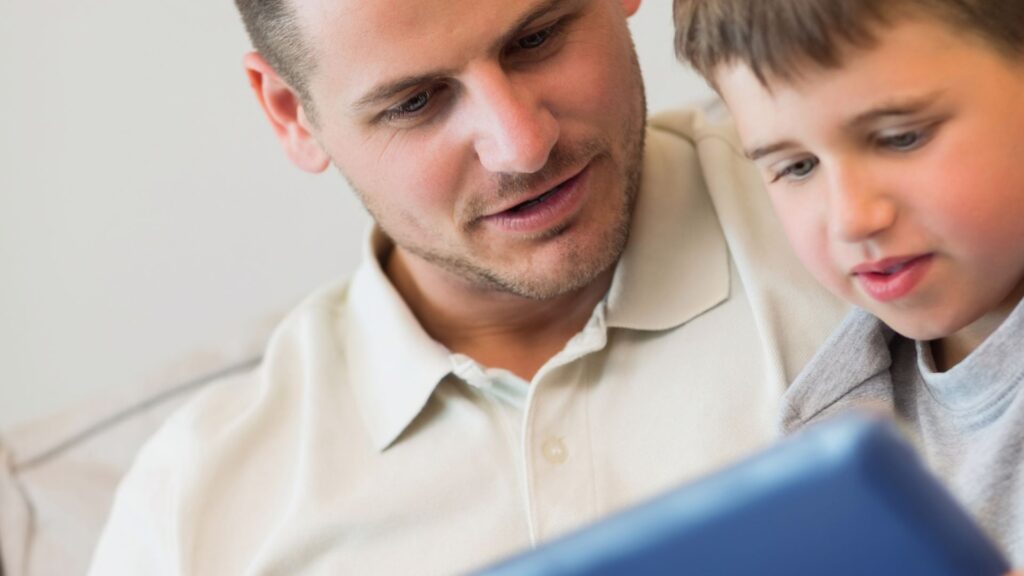Tips for Safe Smart Device

Children and young people all over Ireland will unwrap smart devices this Christmas season, opening exciting new opportunities for learning, creativity, and social connection. However, along with the benefits of technology comes important responsibilities. The Irish Safer Internet Centre, a collaboration between Webwise, ISPCC, National Parents Council and Hotline.ie have prepared a list of tips, advice and support to help both parents and children navigate safe and responsible usage of their new devices.
1. Choose the right device for your child
Research devices carefully to find one that aligns with your child’s development stage. When selecting, consider their age, maturity, and individual needs. Younger children may benefit from devices with robust parental controls and limited features, while older children might need tools that support learning, creativity, and communication.
2. Sharing a first device
If your young child is getting their first device, consider introducing it as a shared device to be used by the whole family. Co-ownership allows you to guide them through setting up controls, settings, and discussing how and when it can be used. This gradual, shared approach not only helps ensure online safety but also helps scaffold their development by gradually building their skills, independence, and understanding of responsible device use over time.
3. Set up devices together
Before your child begins using their new device, take the time to set it up together. This includes configuring privacy settings, selecting age-appropriate apps, and enabling parental controls to ensure a safer experience.
4. Establish a family agreement
Create clear and consistent rules for device use, including limits on screen time, acceptable apps, and online behaviour. By setting guidelines as a family, everyone can understand what is expected and work together to ensure safe online practices.
5. Keep communication open and ongoing
Encourage your child to talk openly about their online experiences. Remind them that they can approach you with any questions or concerns about what they see and do online. Regular check-ins help reinforce the importance of online safety.
6. Foster critical thinking
Teach your child to be critical of the content they encounter online. Help them understand the difference between credible sources and unreliable ones, and encourage them to question information that seems suspicious or too good to be true.
7. Model healthy digital habits
Set a positive example by balancing your own screen time and engaging in offline activities. When children see adults making time for face-to-face interaction and outdoor activities, they are more likely to develop a balanced approach to technology.
8. Stay updated on apps and platforms
Be proactive in learning about the apps, games, and platforms your child is using. Ensure that they are age-appropriate and monitor privacy settings. Understanding the features and risks of these platforms can help you guide your child more effectively.
9. Know where to turn for help
Make sure your child knows they can always turn to you if they encounter any issues online. Encourage them to reach out for support if they experience anything troubling. Being aware of where to go for help is essential in case problems arise.
The Irish Safer Internet Centre said: “Parents play a vital role in helping their children navigate the digital world safely and confidently.”By staying informed, establishing clear boundaries, and fostering open communication, parents can empower their children to have positive and secure online experiences. Recognising that every family has unique needs, at the Irish Safer Internet Centre, we offer a range of evidence-based resources, services, and programmes to support parents, educators, and young people on their digital journey.”
About the Irish Safer Internet Centre
The Irish Safer Internet Centre, comprising Webwise, ISPCC, Hotline.ie, and the National Parents Council, provides extensive resources and support to help parents, teachers, and young people navigate the online world. From advice on online safety and wellbeing to reporting harmful content, the Irish Safer Internet Centre supports families at every step of their online journey.
Irish Safer Internet Centre is:
Webwise the online safety initiative of the Department of Education and co-funded by the European Commission. Webwise promotes safer, better internet use through awareness raising and education initiatives targeting teachers, children, young people and parents. Webwise develops and disseminates resources that help teachers integrate digital citizenship and online safety into teaching and learning in their schools. Webwise also provides information, advice, and tools to parents to support their engagement in their children’s online lives. Webwise is part of Oide, a new support service for teachers and school leaders, funded from the Department of Education.
Hotline.ie, Ireland’s primary national channel for members of the public to anonymously and confidentially report suspected illegal content online, such as child sexual abuse material, technology facilitated child sexual exploitation – child grooming, non-consensual sharing of intimate images and videos (also known as intimate image abuse), racism and xenophobia, and financial scams. Further information can be found through website www.hotline.ie.
ISPCC, national children’s charity that operates the Childline Listening Service, Ireland’s only 24-hour active listening service for children and young people. The service is here to listen to children, to support and empower them and to help to strengthen their resilience so they can cope with any challenges they face. Any child or young person can contact Childline for free and in confidence, at any time, to talk about any issue on their mind. The service can be reached online at Childline.ie or calling 1800 66 66 66.
National Parents Council (NPC), provides a dedicated helpline to support parents and carers in dealing with issues relating to online safety, including cyberbullying. The National Parents Council also provides parents with training courses, both online and face-to-face. The NPC Helpline can be contacted by telephone Monday to Friday 10am – 4pm Tel: 018874477, email: helpline@npc.ie and webchat.
The Irish Safer Internet Centre project is part funded by the EU Union and is coordinated by the Department of Justice – Cybercrime Division.





